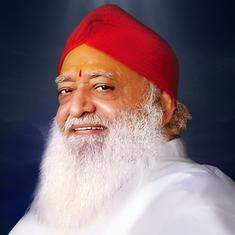Two of the world’s richest men are set to face off over broadband internet in rural India.
Elon Musk’s SpaceX is expected to launch its service, Starlink, reportedly in December 2022 and will directly compete with telecom service providers like Mukesh Ambani-led Reliance Jio, Bharti Airtel, and Vodafone-Idea.
As of now, India’s top four broadband service providers have a market share of over 98% of the 80 crore existing connections in the country.

“Jio has already set the bar really high for smartphone users,” said Shivam Soni, founder and CEO of e-commerce website BeYoung. “And as far as commercial lines are concerned, a majority of them are taking Jio services.”
However, what will make Starlink stand apart is that, unlike others, it will be a satellite-based service. Its kit includes a dish antenna, a stand, its power supply and a wifi router.
This difference is one reason for the excitement around SpaceX’s India entry. It is also why, despite the heavy competition, Starlink may not find making space for itself an uphill task.
Besides, customers are not rigid anymore. “Indian users are nowadays adapting to new changes. So Starlink might have a great response,” Soni said.
Earlier this month, Starlink registered a subsidiary in India – Starlink Satellite Communications – to seek licenses. It has already received more than 5,000 pre-orders in the country, according to its India director Sanjay Bhargava.
Starlink’s current status
Starlink aims to have 2 lakh connections in India by December 2022, up to 80% of them being rural. A pilot looks to provide 100 devices for free in schools of Delhi and neighbouring rural districts, once the government approves it.
Regulatory hurdles aside, the company is confident about its future in India.
“We only want to serve the hardest-to-reach regions,” Bhargava said at an event earlier this month. “If there is broadband by telcos, we can provide service somewhere else. They [service providers] will work together to tap those areas…There is an unlimited market out there…we can change the game – from pricing to access.”
The company is also looking to collaborate to expand its foothold. It is set to begin talks with either Jio or Vodafone-Idea. A deal with the former will make the duo simply unbeatable, experts said.
“With the high demand for flawless internet services and new tech products in the industry, the collaboration of Jio and Starlink can be really fruitful for Indian users,” Soni said. “The other players will have to be on-toes to present better offers and services to existing customers.”
Possible roadblocks
Despite its confidence, however, Starlink’s success in India is not guaranteed.
For starters, a company that has promised services at “subsidised rates” is still taking pre-orders at $99 (Rs 7,346), in addition to another Rs 37,000 that customers are to shell out for the “Starlink kit” – a huge ask from Indian rural customers.
Monthly broadband rates in India are as low as Rs 399.
Weather, too, may prove to be inclement for smooth services. Just like for satellite TV, satellite internet could be interrupted by a cloudy sky.
Yet, experts point out why players like Jio may not be worried.
“There is no certainty if Starlink will offer voice calling services dependent on voice over internet protocol or not…while the service could be carried around as it only requires radio wire, switch, and a power source, it still cannot be as helpful as a cellphone,” said Soni.
This article first appeared on Quartz.










